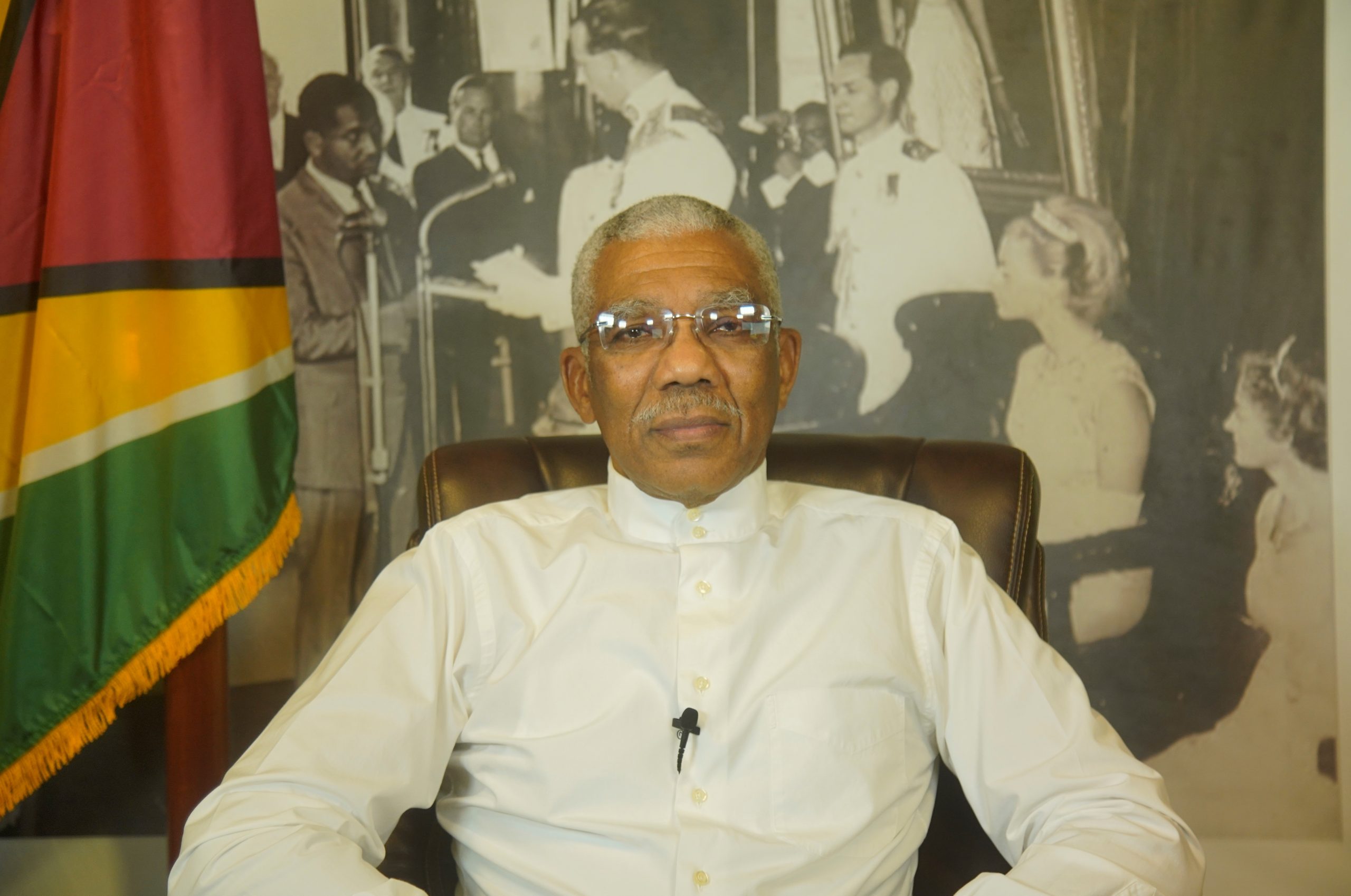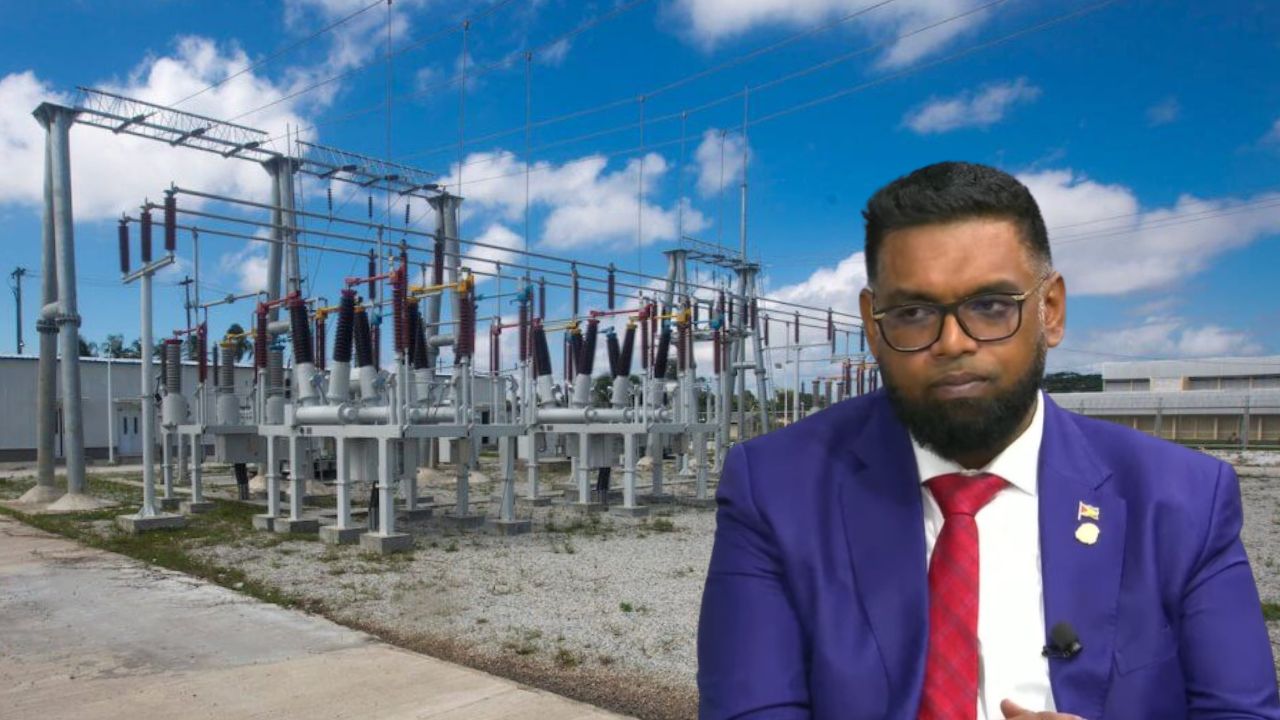While conceding that there is growing disapproval of his leadership of the People’s National Congress Reform (PNC/R), former President David Granger on Friday denied internal chaos and confusion within the party.
“There seems to be an invention by people who are harming the PNC,” Granger said during an appearance on the Public Interest show.
He believes that while there exists some opposition to his leadership, it is an illusion that there is a “tsunami of anger” directed towards him.
The former President has been up against a bombardment of criticism since his defeat at the March 2020 elections. On Friday, he said other party leaders have faced similar criticism and rejection; Granger singled out the late Desmond Hoyte who he said was attacked publicly in the press in 1992 after the PNC lost the general and regional elections that year.
The PNC/R leader believes he now faces a similar situation.
Although delayed, Granger said there will be a Congress and his leadership can be challenged democratically through that medium while reminding that he was not elected by the Central Executive Committee (CEC) of the party or any fraction but rather by the Congress of 2018.
“There is a legal framework. Congress will be held and persons are free to compete… let us keep it clean, constitutional,” he said.
Granger stopped short of announcing whether he will run again for leader of the party.
“Congress will decide on the next leader, whoever that person is… If I choose to run, it’s a matter for me to decide,” he said.
Granger explained that congress is held every two years, the last time in 2018. He said while it was due in 2020, those elections were not run off because of the national general and regional elections. The delay continues because of the COVID-19 pandemic, he said.
“We know Congress has to be held but the question is how can we hold congress safely during COVID?… the CEC subcommittee is actively examining measures needed to be taken to have congress as earliest as possible time,” Granger said.
Addressing reports of two no-confidence motions against him from the Georgetown and East Coast Demerara districts of the PNC/R, Granger said the motions are difficult to define.
He seems to believe that they are a public tactic by opponents to his leadership. His 76th birthday celebrations last week were overshadowed by criticisms of his leadership style.
The latest reproaches, which call into question his “one-man show” style of leadership coincided with observances to mark the 10th anniversary of the former President’s founding political coalition -A Partnership for National Unity (APNU) – where Granger continues to serve as its Chairman.
The criticisms came from the Central Executive Committee (CEC) of the PNC/R. The CEC is the highest decision-making body in the PNC/R. The PNC/R is the largest party in the APNU+AFC Coalition of which Granger is also the Leader.
A statement from the PNC/R CEC also disapproved of the behaviour of the party’s General Secretary, Amna Ally. The body said Granger and Ally continue to disregard the decisions of the Central Executive Committee.
But, in response, Granger said, “These are just inventions of the media… people are planting these releases and the public believes its fact but it’s not fact.
“I can’t figure out what the game is, you don’t win elections by dividing the party.
“It’s a phantom motion, no text, no votes, no defence… it’s difficult to understand,” Granger said.
He also used the opportunity to defend his decision to admit two shell parties into the APNU, an issue that has caused much disquiet among members of the PNC/R.
Granger reminded that the PNC/R was part of the APNU and not the other way around.
In recent weeks, the PNC/R has faced several resignations by senior youth members and members of the CEC. On each occasion, Granger’s leadership was criticized amid calls for him to give up the leadership of the party.
Granger’s leadership has been described as, among other things, dictatorial.
Asked about his decision not to return to Parliament, Granger said he felt he could best serve the party from outside of Parliament and similarly other senior members of the party. He explained his reason for keeping other long-serving members out of Parliament.
“August last year, I felt that I needed to pay attention to the elements, the grassroots, the mechanics to the party organisation and administration and I felt I can better serve the party as leader from congress place than from Parliament.
“Most of the persons who did not go back have served over 15 years… we have given way to younger people. You don’t keep people there until they die.
People must be prepared to serve and having served to mentor a new generation of people.”













This situation is nothing like that of Hoyte.. Hoyte was vilified from within his own party for NOT rigging the 1992 elections.